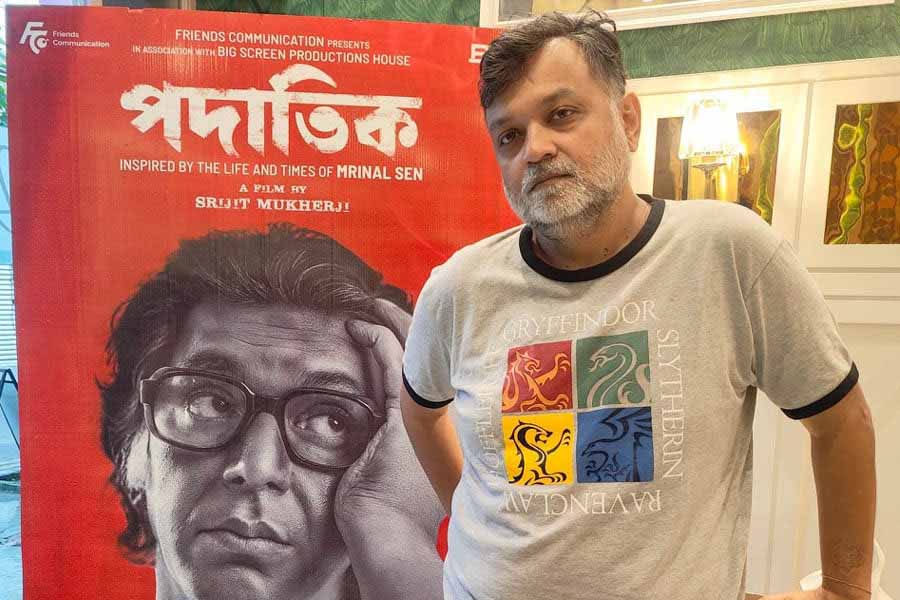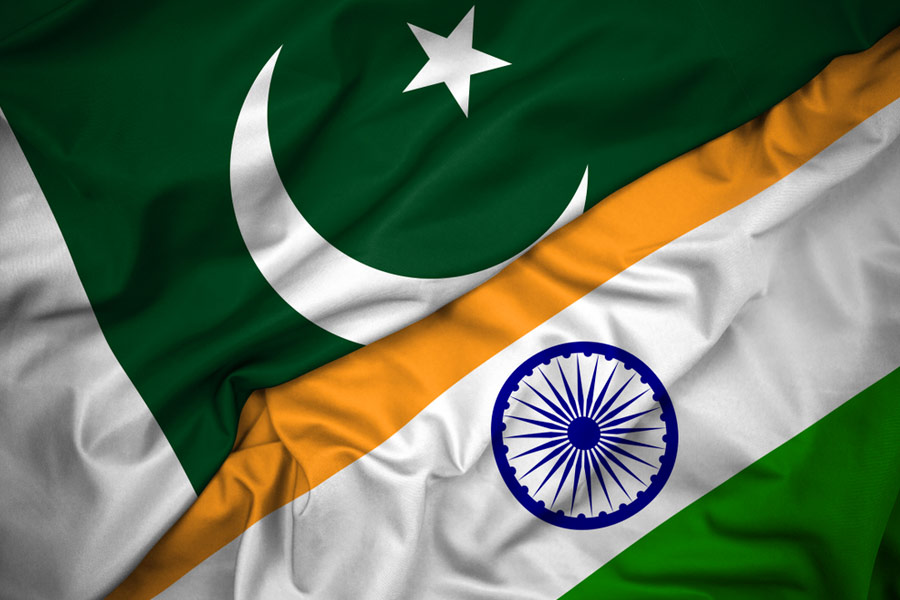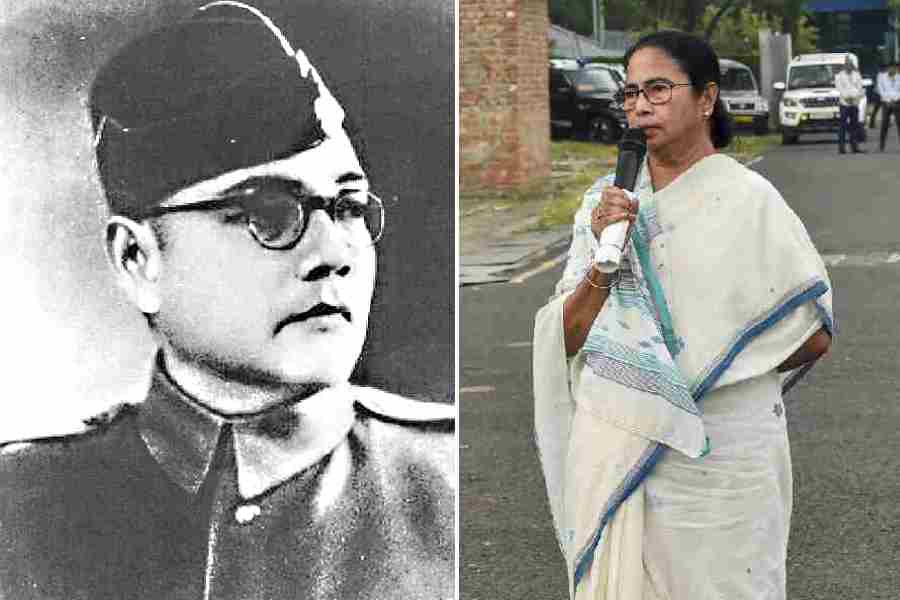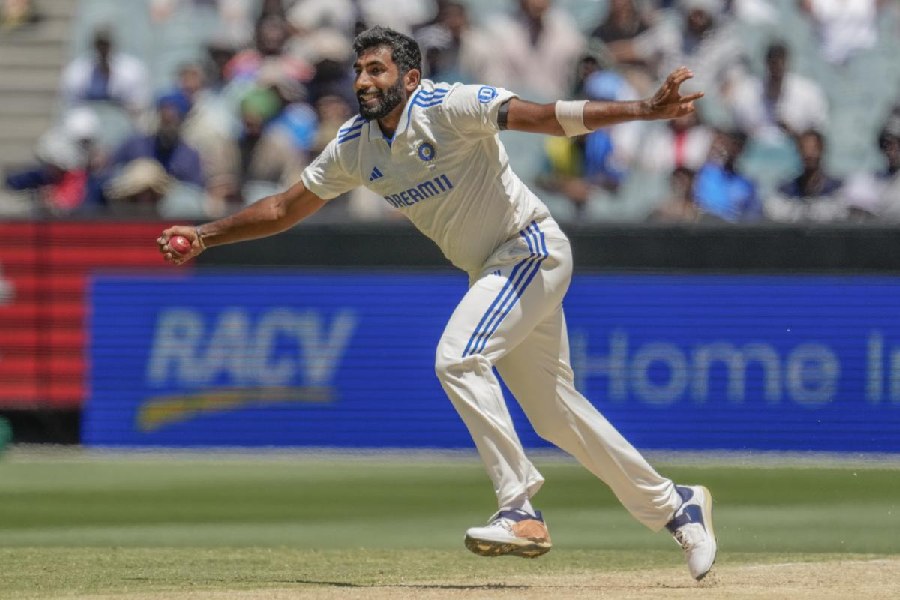After his ode to matinee idol Uttam Kumar, director Srijit Mukherji paid homage to Mrinal Sen with Padatik, which hit theatres on August 15. In a chat with The Telegraph Online, Srijit shares how Mrinal Sen influenced him as a filmmaker, the challenges of making Padatik and his adaptation of Sherlock Holmes that is streaming on Jio Cinema.
When did the idea of making a film on Mrinal Sen started to take shape?
Srijit Mukherji: I wanted to pay tribute to Mrinal Sen on his centenary. I feel the way we celebrate Satyajit Ray, we don’t celebrate Mrinal Sen as much. He is an equally internationally acclaimed maestro. I thought the centenary would be a good time to come up with the official classical biopic.
What are some of the aspects of his personality that you have tried to portray in the film?
Srijit Mukherji: Sen as a filmmaker, Sen as a father, Sen as a husband, and Sen as a friend. I conversationalised his articles, his take on politics, his take on how the intellectual world responded to the Naxalite movement — or rather, the lack of response — his views on Aparajito… his favourite Ray film, his views on Ritwik Ghatak, and his views on Latin American cinema. The film is a celebration of Mrinal Sen in Mrinal Sen style. I have used the cinematic tools and techniques used by Mrinal Sen himself — the use of freeze frames, breaking the fourth wall, jump cuts, non-linear storytelling, and using pre-existing footage to create a period. At the same time, I have told the story keeping in mind my filmmaking tools — the use of music, and actors in a kind of heightened realistic way.
How has Mrinal Sen inspired you as a filmmaker? Which are your favourite films?
Srijit Mukherji: To me, Satyajit Ray, Mrinal Sen and Tapan Sinha are legends who formed a lot of our childhood and our thoughts through their cinema. They influenced me profoundly. My style of filmmaking may not follow theirs but there are lots of elements that I have imbibed. Tapan Sinha’s sense of music… Satyajit Ray is quite unparalleled while handling dialogue and screenplay writing, handling actors… and every guerilla shoot I have been a part of in my life is a subconscious oath to Mrinal Sen. Mrinal Sen is possibly the most fearless filmmaker. Telling stories on your terms is something I have imbibed from him.
I remember meeting him after the release of my film Autograph. He liked Autograph and also had some reservations about it. I am very lucky to have had that evening. I shared with him how much I liked Akaler Sandhane. I told him it was a film that hit me like no other and stayed with me for years.
Among my favourites is Akaler Sandhane because of its film-within-a-film structure which affected me at an early age. Interview, which is a textbook on how to break rules in filmmaking. And, of course Padatik, a very political and very introspective film. I love Kharij too.
I named my film Padatik because it resonates more with Mrinal Sen’s journey as a foot soldier of Indian cinema, the things that he achieved and he soon became the father of the new wave.
What was the most challenging part of telling his life story?
Srijit Mukherji: Mrinal Sen had his own view of politics, philosophy and the world. He was not a perfect man, husband and father. That needed to come through. Kunal Sen (Mrinal Sen’s son) strongly insisted that I don’t make a hagiography. To capture that was a big challenge. As a film buff, somewhere you have also put him on a pedestal. To re-discover him was a challenge. To highlight those and do it with empathy was a challenge.
What kind of research went into the film?
Srijit Mukherji: Since I had the opportunity to meet Mrinal Sen, I have my impression of him. Then, his son Kunal Sen helped me with the nitty-gritty. I have read his memoirs which are going to be published very soon. Professor Sanjay Mukhopadhyay has helped me with extensive research.
Other people include Debasish Mukhopadhyay, Siladitya Sen, Dipankar Mukhopadhyay, and Anjan Dutt, Mamata Shankar and Dhritiman Chatterjee with whom I had major sessions. Mrinal Sen’s films, books, articles and essays were there too. I went to libraries, spoke to film scholars, and dug up old magazines. The research took around a year. I wrote the script during Covid-19.
Can you talk about the mise-en-scene of the film?
Srijit Mukherji: The entire film is colour-coded based on the years. We start with black and white and then we get into the black and white which we see in his early films – film noir and frames and then the black and white quality improves as we go forward. From 1975 — that is when Mrinal Sen made his first colour film Mrigaya — the film turns into colour and then slowly when we come to 2018, the colour progressively gets normal.
I have shot in actual locations including two of his homes, and also period recreation was hugely affected by the free hand given by the producers who told me to shoot it for as many days as I wanted but immense with care. That is why the film has come out in a very uncompromising way. The costume and period recreation has been spot on. I’m very proud of Tanmay Chakraborty (art director) and Sabarni Das (costume stylist) who helped me to achieve this. The makeup of the film is done by National Award winner Somnath Kundu.
Padatik covers 78 years of Mrinal Sen’s life including various big events like Rabindranath’s last journey, the Naxalbari movement and the Bengal famine. I have covered eight decades. We have five looks decade-wise — 30s, 40s, 50s, 60s and 90s.
The music of the film is based on old classics. The classics that are not very popular, for example Tu Zinda Hai, Jawnotar Hathe Hathe. I also used Shawkaatore Oi. Rabindranath Tagore, Salil Chowdhury and Kabir Suman; I don’t think it gets better than this.
What made you cast Chanchal Chowdhury as Mrinal Sen?
Srijit Mukherji: I was watching Taqdeer (Hoichoi series) where I saw Chanchal Chowdhury and I thought there was a lot of facial similarity between him and Mrinal Sen. According to me, there is a classical template of a biopic and the physical similarity was very important. He fit into it.
Your new Hindi series Sekhar Home is streaming on Jio Cinema...
Srijit Mukherji: Yes. I have been obsessed with Sherlock Holmes for a very long time and I wanted to do an Indian spin-off Sherlock Holmes. I always thought Kay Kay Menon would make for a brilliant sleuth as he is sleuth-like in his manner of speaking. After working with him on Ray, I collaborated with him on Sekhar Home. The rest of the cast was also brilliant. I had a lot of fun creating the world with Aniruddha Guha, one of the most creative and talented writers around. I shot it majorly in Santiniketan. It is a Bengalified Kay Kay as Sekhar wearing batiker panjabi.
How was it to work with Kay Kay Menon, Rasika Dugal and Ranvir Shorey?
Srijit Mukherji: They are very interactive and they had their suggestions. It was interesting talking to them and interacting with them, getting their vision of the character and synthesising it into mine.
What is next for you?
Srijit Mukherji: I am working on the edit of Shotti Bole Shotti Kichhu Nei, and Tekka is releasing this Puja.











